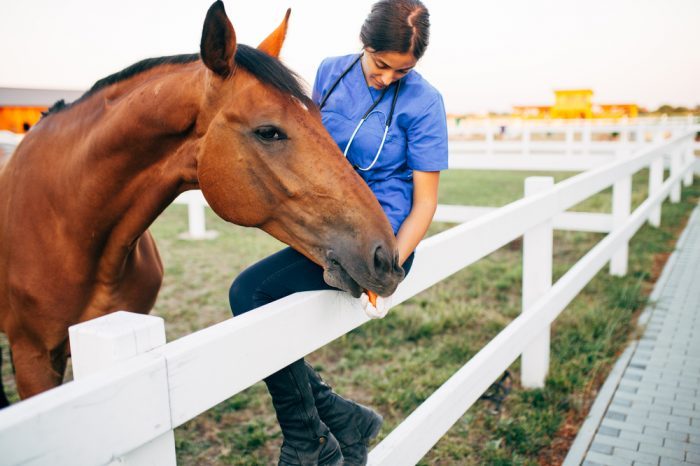The popularity of CBD for dogs is rising, but many pet owners don’t know the dangers of whole plant medicine for dogs?
Medical cannabis is making its way from pet owners’ medicine cabinets to the veterinary practices of their furry friends. This is a cause for celebration, however, some people still aren’t aware of some fundamental risks, like what happens if my dog eats weed?
Cannabinoids are now a big topic of discussion among dog owners, with furry friends suffering from pain, anxiety, and the challenges of old age. There may be therapeutic potential for certain aspects of cannabis, but did you know THC can be poisonous for pups? If you’ve ever wondered, “what happens if my dog eats weed?,” then you need to know the risks as well as the possible benefits.
Many pet owners are hopeful that the medicinal qualities of cannabis translate well from two-legged creatures down to the four-legged variety. But, researchers already know that not all cannabinoids are therapeutic for canines. While CBD seems well-tolerated in both cats and dogs, researchers already know THC is quite toxic to dogs (and probably cats).
Why Can’t Your Dog Handle THC?
According to Connie Varnhagen — an animal science instructor at the University of Alberta in Canada — dogs do not handle THC in the same way that humans do. As she explained to Phys.org, “They can die from an overdose. People get high; dogs get poisoned.”
This small but crucial difference isn’t well known among dog owners. Vet’s frequently field questions from owners about the consequences of their dog eating cannabis. It’s safe to assume few owners know just how dangerous the wrong cannabinoid could be.
Both dogs and humans have an endocannabinoid system, which operates in similar ways to regulate several key biological processes. So why does THC hit canines so hard? There are several important differences between the endocannabinoid receptors in a dog’s brain and a human brain. As it turns out, the brain of a dog contains far more CB1 cannabinoid receptors than human counterparts.
Dogs Have More CB1 Receptors in the Brain
According to Robert J. Silver’s review published in Animals in 2019, “As compared to humans, studies have determined the number of CB1 receptors in hind brain structures in the dog far exceed those found in the human animal. The U.S. government conducted studies that determined that dogs have large numbers of cannabinoid receptors in the cerebellum, brain stem, and medulla oblongata.”
What does this mean when the effects of THC come into play? With more receptors, in specific areas, a dog’s system becomes swiftly overwhelmed by the binding of the THC molecule. If your pet accidentally ingests your medical cannabis, or you’ve dosed your canine-companion with a THC-rich product, they are at risk of developing an acute condition known as static ataxia. In high enough doses, THC can be lethal for dogs.

FAQ About Dogs and THC
What Happens if my Dog Eats Weed?
When humans consume THC, common adverse reactions include dry mouth, sedation, appetite changes, and sometimes increased paranoia. When dogs consume THC, they typically develop static ataxia. In the beginning, your dog may seem more excited, as if they are enjoying the experience, but over time the symptoms become alarming. As Silver detailed in another paper for the Veterinary Botanical Medical Association, even small amounts of THC can mean big trouble for canines.
Symptoms of static ataxia include drooling, urination, rocking back and forth, and difficulty walking. They could even fall over. If you believe cannabis is in your dog’s system, seek veterinary attention immediately.
Raw Cannabis is OK for Dogs, Right?
For humans, eating raw cannabis does not deliver intoxicating effects because dried cannabis usually only contains minimal levels of THC. Fresh cannabis contains the cannabinoid precursor called THCa, which is non-intoxicating. Once heated through a process called decarboxylation, THCa turns into THC. Therefore, raw cannabis is relatively benign if consumed before decarbing.
Some pet owners may assume this theory also applies to their dogs. While THCa may be less risky for canine-consumption, the truth is veterinarians just don’t know. There is not enough research on how THCa versus how THC affects dogs. Without well-controlled studies, it is not worth the risk to treat your dogs with THC/THCa rich cannabis flower.
Additionally, the aging of cannabis due to exposure to light and oxygen, will result in some THCa being converted to THC. This means that even raw cannabis has some THC. And given the number of brain receptors for this cannabinoid, in the canine brain, there can be trouble for your doggo.
Why is my Dog High?
You know, as a dog owner, that your furry friend tends to live his or her life by the nose. When you aren’t home, your dog may find its way into the garbage or demolish one of your expensive leather shoes. Dogs are very adept at finding interesting smelling items — and then eating them.
Dogs get themselves into trouble by eating the butt ends of joints, or a delicious and unattended edible. Your dog may be high because it found a mysterious bit of greenery on your floor, and you were unaware it was missing. If you suspect your dog may have eaten cannabis, contact your vet without delay.
Veterinarians believe that cats also have trouble handing THC, but the risks for felines are much lower. Cats don’t tend to eat as many miscellaneous items. Naturally, they are far less likely to consume cannabis accidentally.
Can my Dog Die From Cannabis?
Yes. Varnhagen, the animal science instructor, told Phys.org there are several canine-deaths linked to accidental edible ingestion in Colorado alone. Presumably, in other markets, there are similar tragedies, but there are not yet national statistics on the subject. Even small doses of THC-rich cannabis may be lethal to your dog, and the smaller the dog, the more at risk they are of deadly overdose. Keep your supplies secure, and well away from the curious noses of your four-legged friends.
How Much THC for Dogs? (Hint: Zero)
Theoretically, at least, Silver believes there is a way to build a THC-tolerance in dogs. However, this theory is in its infancy and requires extensive well-controlled research to determine the dosing guidelines, risks, and benefits.
With the known risks of THC for dogs, is it worth it? Considering dogs tolerate CBD very well, why not stick with safe and effective cannabinoids? You can easily eliminate the risk by keeping THC out of the equation. Choose a hemp-based CBD product or CBD isolate for your pooch.

A Final Note on THC and Dogs
THC represents a significant risk for dogs, whether they get it under the intent to deliver therapeutic value, or if it is accidentally ingested. Medical cannabis patients, who are also dog owners, need to exercise more caution than usual when storing and preparing their medicine. Keeping THC out of canine-medicine is crucial to keeping pups safe and happy.
Unless prescribed under the direction of an experienced veterinarian, dog owners should always stick to hemp-sourced and THC-free preparations of cannabis for their canine-companions. Work with your veterinarian to determine the dose and appropriateness of CBD for your dog.




